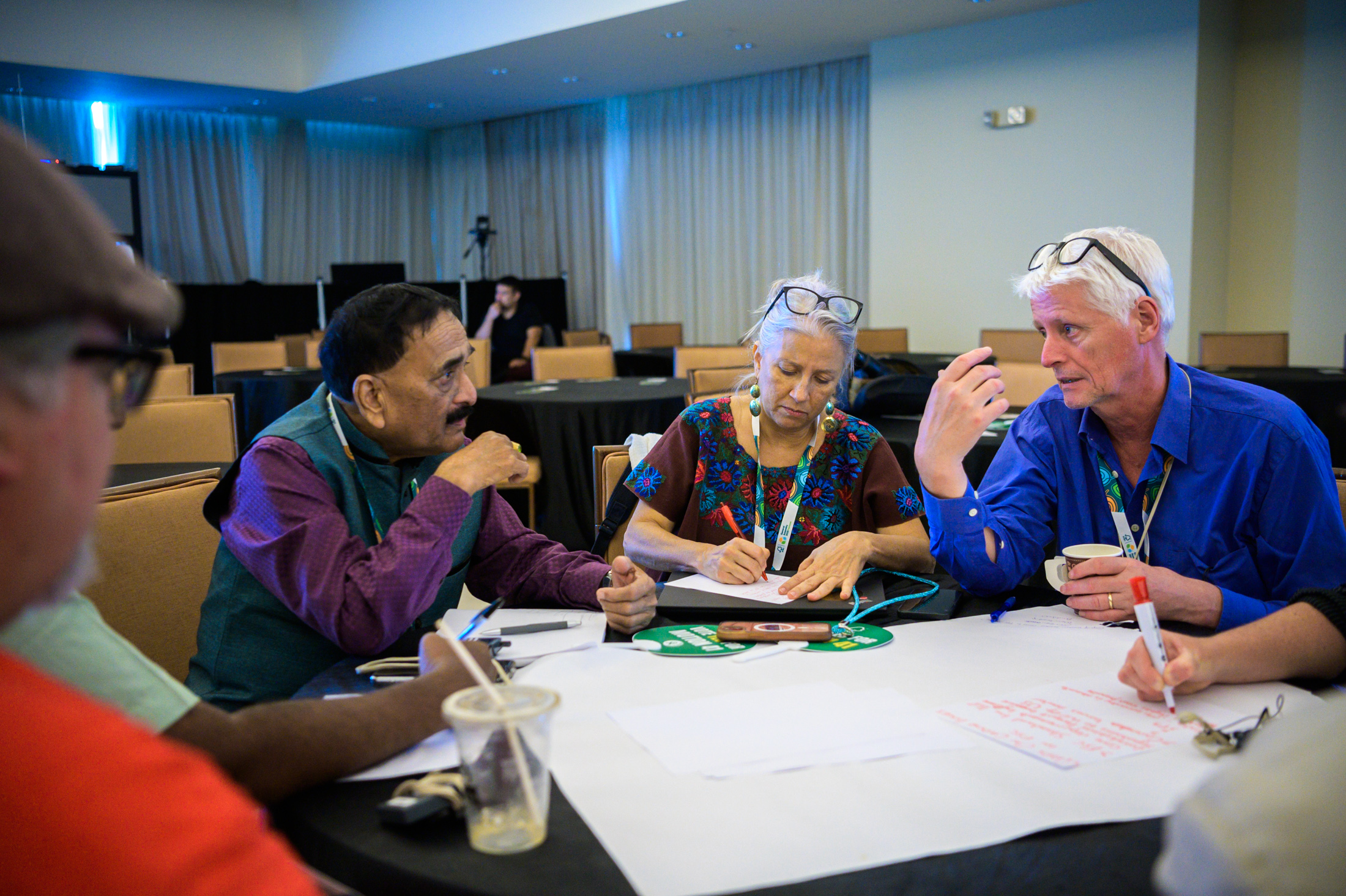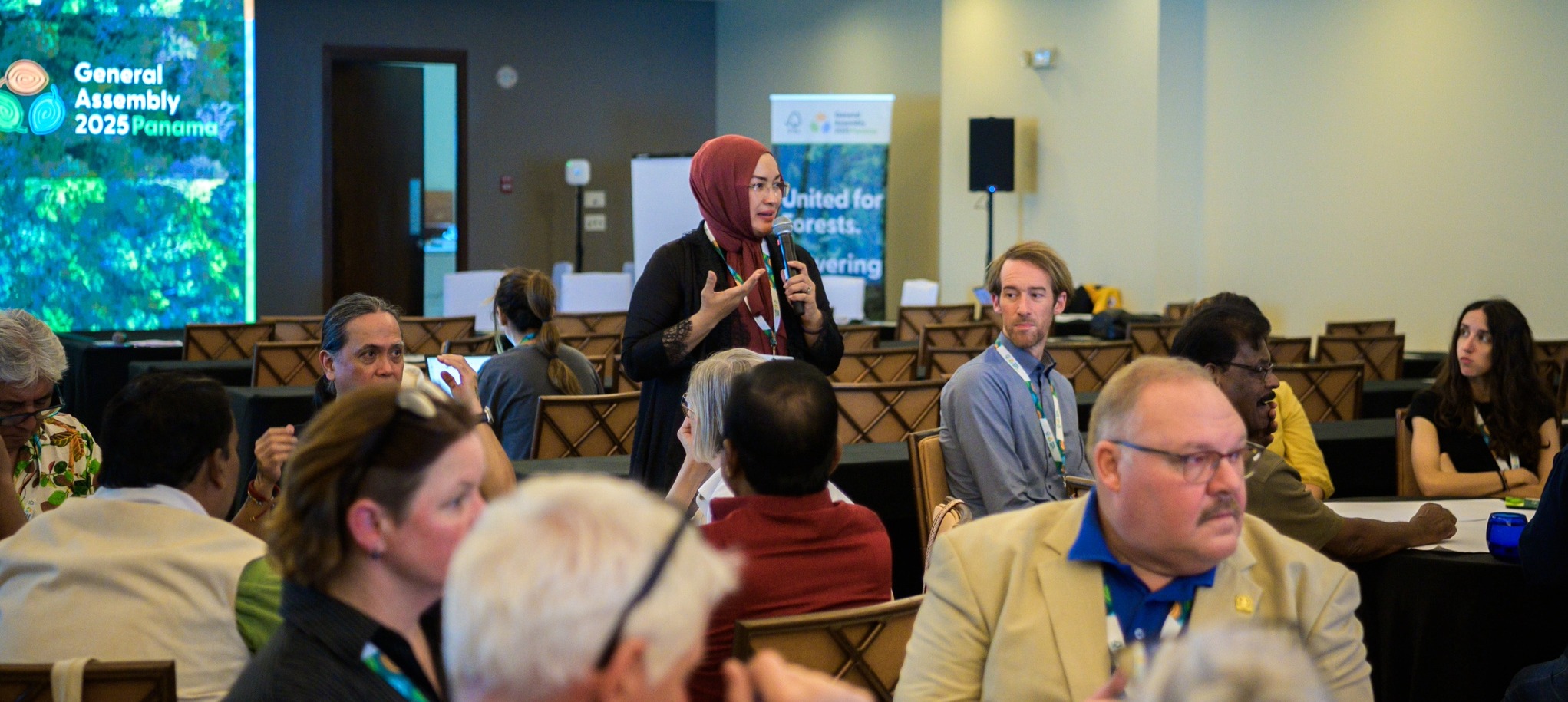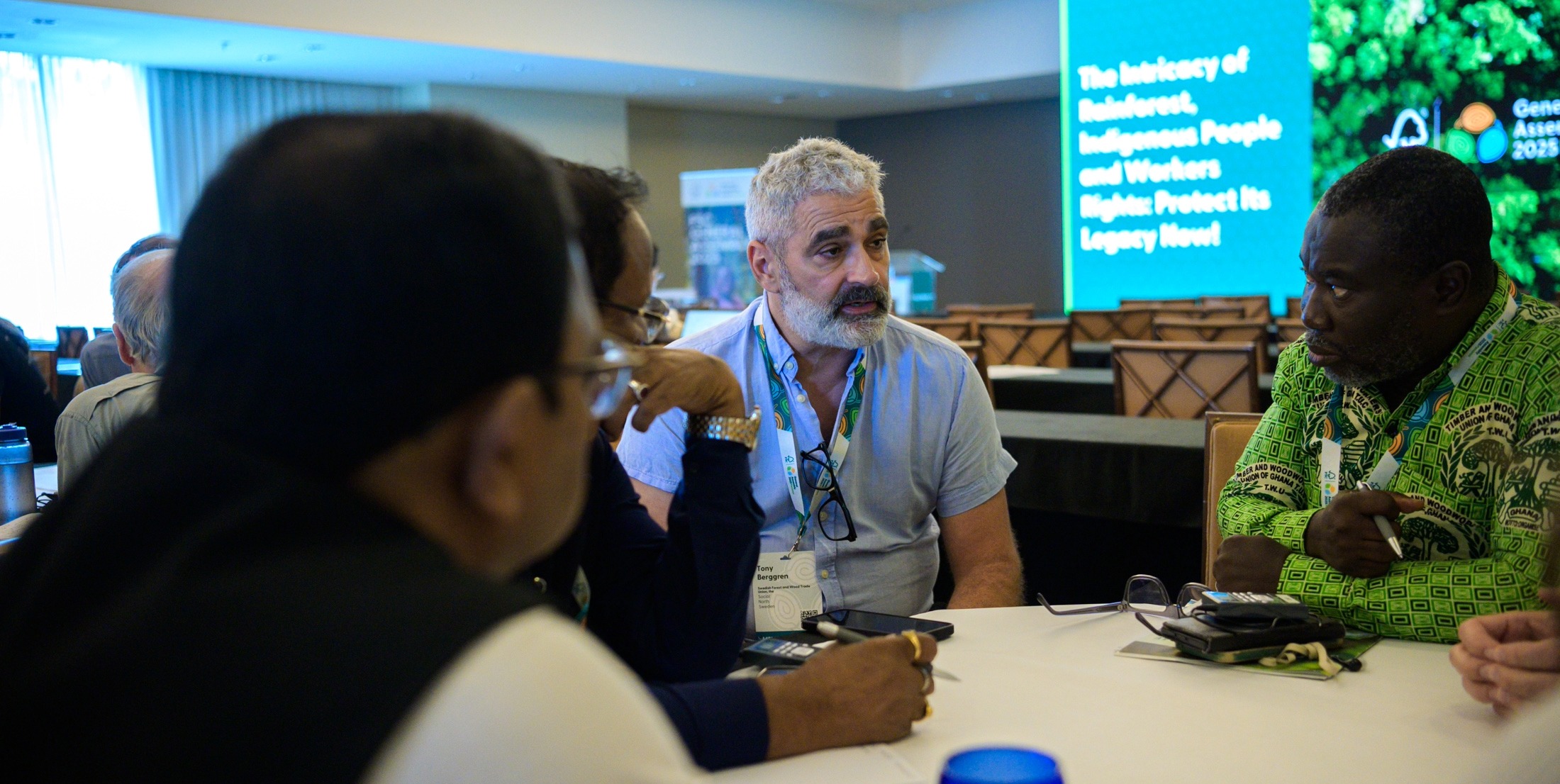Destruction of the rainforest and exploitation of forestry workers and Indigenous Peoples are deeply interconnected crises driven by extractivism, illegal logging, and unsafe labour conditions. Achieving true climate justice requires protecting both the forests and the people who sustain them.
An FSC General Assembly session brought together members and stakeholders to discuss protecting the rights of forest workers and Indigenous Peoples in the context of the Forest Stewardship Council (FSC).
Bruno Bothua of the Building and Wood Workers’ International (BWI) opened the session with a clear message: sustainability cannot exist without justice for the people who live and work in the forests. “Nothing with forests without forest peoples,” he said, noting the 33 million workers who depend on forests for their livelihoods.

How to better integrate workers’ rights in FSC
Participants worked in groups to identify gaps and opportunities for how the FSC system could better protect worker’s rights. There are gaps in the audit process - for example, that auditors may not always have sufficient knowledge of workers’ rights, and that interviews with employees can sometimes be pre-selected by companies, limiting transparency.
Speakers also emphasized need for spaces of meaningful negotiation between workers and employers. Company-sponsored unions and weak enforcement in nations that have not ratified key International Labour Organization (ILO) conventions further exacerbate these challenges. Workers, particularly Indigenous and seasonal labourers, continue to face job and health insecurity, while women often remain in informal, seasonal, or unpaid roles.
Another concern was the lack of awareness among workers about what FSC certification means. Many forest workers do not realize they are employed by certified companies, which limits their ability to claim rights under the system.
While FSC has tools to safeguard workers’ rights such as Principle 2, the Chain of Custody Core Labour Requirements and the complaints and appeals procedure, participants shared additional initiatives needed address these issues. They called for culturally appropriate awareness programs for workers and Indigenous Peoples, stronger complaint mechanisms, and the consistent implementation of Free, Prior, and Informed Consent (FPIC).
Linking climate justice to rights
Rulita Wijayaningdyah, from Indonesia’s forestry trade union Kahutindo and BWI, reminded participants that, “Workers, Indigenous Peoples and local communities are very important social actors within the overall FSC system, and they live side by side.” She introduced a diverse panel to dive into these topics in more detail.
Tony Berggren from Brazil’s SINTREXBEM emphasized that sustainability must go beyond environmental concerns to include workers’ rights, as most labour abuses occur deep within supply chains where oversight is weakest. He called for stronger enforcement of FSC standards, inclusion of unions in audits, and education for workers, stressing the need for collaboration to build understanding from the ground up.
Ernesto Marval of the BWI highlighted that protecting tropical forests like the Amazon is inseparable from defending the labour rights and dignity of the people who live and work there. With 58% of Amazonian forest workers in informal employment – compared to 38% nationally in Brazil – he warned that informal labour undermines both social justice and environmental stewardship.
“There can be no climate justice without labour rights,” said Ernesto, underscoring that Indigenous and workers’ rights are essential to both social and environmental justice.
Mark Ofori Asante of the Timber and Woodworkers Union of TUC in Ghana expressed gratitude for the positive impact of FSC certification on improving labour relations, fair wages, and worker welfare within the forestry sector.
“We must take a bold initiative toward creating a fairer and more sustainable forest economy, trusting that FSC is not just a business tool, but a beacon of hope for workers, Indigenous Peoples, and the environment,” he said.
Moving forward
To close, Rulita highlighted that this is just the beginning of a more strategic conversation that FSC needs to have in the social chamber and beyond.
Bruno urged solidarity between Indigenous Peoples and labour unions, as both are advocating for justice. He noted the importance of these topics right ahead of the UNFCCC COP 30 in Belem, Brazil, declaring that workers and Indigenous Peoples must be central to these decisions. “Rainforests thrive with their people,” he concluded.



